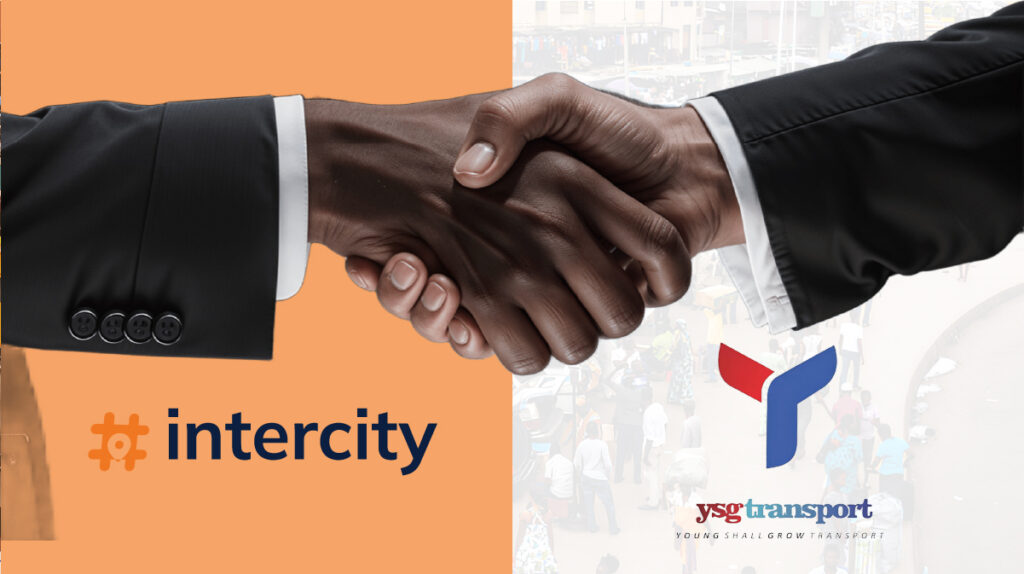Over the past 10 years (2012- Now) the Nigerian transport industry has experienced a surge and increase in the entrance of new operators into the Transport system. A few years ago, you needed a lot of capital to delve into the Transport business, a registered business, and a stable source of income for fleet financing and maintenance.
Currently, Anyone with enough money can just buy two buses, slap logos on them, find a pickup location/terminal, and “start” a road transport company without having to check in with any government authority or agency.
This is part 2 of the series where we evaluate the travel ecosystem in Nigeria. In this part, we will be looking at transportation from the operator’s view, we will be discussing challenges and various opportunities for improvement
Yes! we have Peculiar a Sales Representative, and Feranmi a Product Manager who contributed to this series.
Catch up on the previous part
Currently Discussing
- The Operator’s eye view of ground transportation In Nigeria
What to expect next
- The Traveler’s eye view of ground transportation
- The Partner’s eye view of ground transportation
- How Powering your travel inventory can enhance and improve the travel system
Ground transportation in Nigeria is a complex and ever-evolving landscape. Operators face several challenges, including poor infrastructure, traffic congestion, and a lack of formal regulation. However, they also play a vital role in the Nigerian economy and society, providing essential services to millions of people every day.
With the various challenges faced by operators, there are still improvement opportunities for operators who want to come into the space or existing operators who are thriving.
It is not new to us that starting up a new transport business isn’t so difficult anymore compared to 2012 (10 years back), this is how Peculiar describes it “Anyone with enough money can just buy two buses, slap logos on them, find a pickup location/terminal and “start” a road transport company without having to check in with any government authority or agency”
We have seen the rise in informal cabals that demand informal taxes to allow Transport companies to operate in certain locations or ply certain routes. These cabals are also able to hold sway since there are no structures, regulations, or inspections on how a transport business can/should operate, what the boundaries are, or the parameters governing the ability of a business to move goods and people across the country.
We have consciously noticed that every typical tier 3 transport business has similar processes, operations, and sales strategies, the problem the transport business is trying to solve has long shifted from just enabling the customer to travel freely to creating a good customer experience (CX). This is why bigger brands are thriving.
In this industry, good CX means:
- Safety,
- Sustainability,
- Accessibility,
- and on-time performance.
We can’t leave out the fact that Nigeria’s Infrastructure still affects these transport businesses, Here are known challenges:
- Poor infrastructure: The road network in Nigeria is often in poor condition, making it difficult and time-consuming to travel. This can lead to delays and increased costs for operators.
- Traffic congestion: Traffic congestion is a major problem in Nigerian cities, and it can have a significant impact on the efficiency of ground transportation services.
- Lack of formal regulation: The ground transportation sector in Nigeria is largely unregulated, which can lead to unsafe and unreliable services.
- Competition from informal operators: Informal operators, such as motorcycle taxis and minibusses, play a major role in the ground transportation sector in Nigeria. This can create unfair competition for formal operators.
The Nexus between Survival and Scaling.
Understand why Tier 1 transport business is growing, It is important to understand the flywheel growth behind successful transport business
- Easy booking experience for customers
- Comfortable travel experience
- Excellent and dedicated customer support
The result of this flywheel is growth through returning customers, word of mouth, and new customers
In a fireside chat, with one of the Transport Operators at Intercity, he stated that Innovation birthed competition in road transport which has caused 100% growth in road transportation.
To solidify his point he stated that Before 2012, luxury Buses were used for long-distance trips within the country which translated to long travel Hours and an increase in the loss of lives. In 2012 God is Good Motors (Gigm) disrupted the road transport business by rebranding their Operations and introducing the use of Hiace Buses for long-distance trips, thereby reducing travel time by over eight (8) hours, and increasing comfort and safety.
With the Introduction of Hiace Bus, luxury bus owners who didn’t join the trend were thrown into extinction and out of business. Today those luxury Buses are being used strictly for logistics purposes and transportation of goods from different parts of the country, as 95% of Travelers would Only travel with a 14-seater bus or Sienna.
Additionally, he stated that 10 years ago (2010) there were barely three transport companies that piled the South-west route from the South-south (Rivers-State, Portharcourt as a case study), 10 Years later Over 15 transport companies have been founded and now, transport travelers from the South-south to other parts of the country, giving road travelers multiple options to pick from and also challenging Transport Operators to improve their mode of Operations.
To further conclude his chat session, he said the digitalization of operations and the booking process, has become a big part of the Transport system as customers would readily go for transport companies that provide them with the opportunity and comfort of booking from home, pick seat before arrival and are sure of timely departure. Transport companies with digitized operations and an online presence have recorded about 80% increase in their gross revenue.
Related: Introducing the Enhanced IntercityNG Operator App and Operator Portal!
The Journey Thus Far…
Drastic Decline in the Growth of the Nigerian Economy has really given the transport industry a big hit, as the cost of acquiring new fleets has doubled, making it almost impossible for transport operators to increase fleet size, to keep up with demand, they’re either stuck with purchasing fairly used car’s that easily wear and tear. Currently, it costs about 27 million to purchase a brand new Hiace bus.
Another challenge is the terrible state of roads in Nigeria. They are so bad that Nigeria records one of the highest road accident numbers in the world with several hundred lives lost every year. The roads are very bad and that causes the vehicles to wear faster, increasing maintenance costs, reducing fleet productivity, and escalating operational costs. Per a 2012 estimate of the National Planning Commission, 87% of local government roads (or the majority of the roads in the country since most roads are LG roads) are in poor condition, 78% of state government roads are also in poor condition and 40% of federal are also in similar conditions. These numbers do not include roads that require maintenance and trunk roads that are yet to be tarred.
As we conclude, here is
How to improve Customer Experience for your Customers
- Investing in vehicle quality and safety: Operators should invest in well-maintained and safe vehicles. They should also ensure that their drivers are properly trained and licensed.
- Providing reliable and efficient services: Operators should provide reliable and efficient services to their customers. This includes arriving on time and following the agreed-upon route.
- Offering competitive fares: Operators should offer competitive fares to their customers. They should also be transparent about their pricing and avoid hidden charges.
- Providing good customer service: Operators should provide good customer service to their customers. This includes being courteous and helpful and responding to customer feedback promptly.
- Use technology to improve efficiency and customer service: Operators can use technology to improve their efficiency and customer service in several ways. For example, they can use mobile apps to allow customers to book tickets and track their vehicles in real-time. They can also use technology to manage their fleet and dispatch vehicles more efficiently.
- Partner with other operators: Operators can partner with other operators to improve their reach and coverage. For example, they can partner with local bus companies to offer intercity transportation services. They can also partner with ride-hailing platforms to offer on-demand transportation services.
- Get feedback from customers and use it to improve their services: Operators should regularly collect feedback from their customers and use it to improve their services. This feedback can be collected through surveys, social media, or customer service channels.
We strongly understand how Transport businesses operate, but we believe there is more to selling tickets which is an adequate Customer experience, this is the missing link we have noticed. Investing in good customer experience can enhance transport business operations thereby increasing customer count and revenue for the business
In the next series, we will have a look at The Traveler’s eye view of ground transportation.




